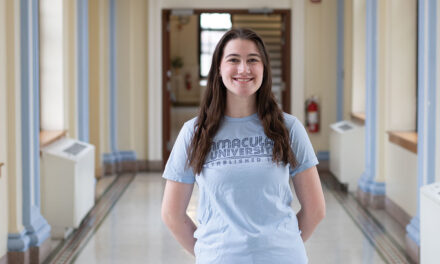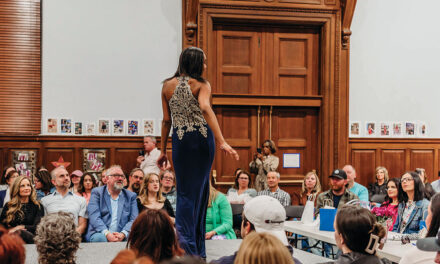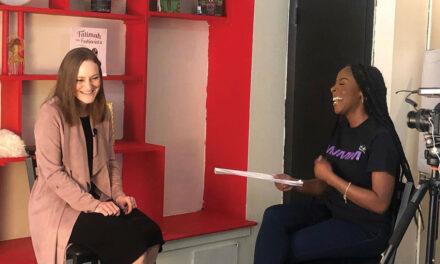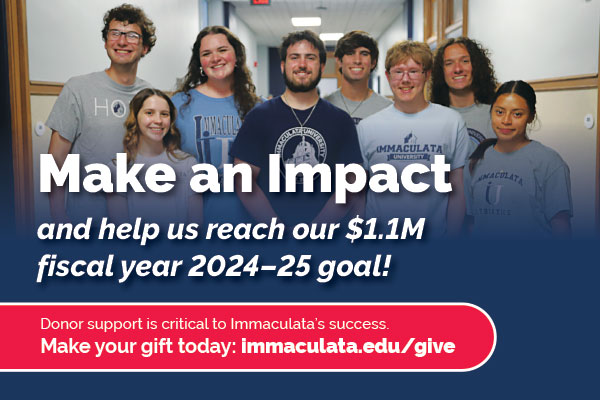Last spring, Zack Robie ’11 assigned teams of freshmen in his robotics and engineering studio class at Salesianum School in Wilmington, Delaware to design a mechanism that would lift a ring and drop it over a post. Robie kept the assignment open-ended without providing specific instructions for what to build.
“A lot of groups fell back on what they were comfortable with, using a claw and arm mechanism,” Robie said. “But I had one group that built what sort of looked like an elevator. They had two different belts that needed to work together to drive up and lift the ring. It was definitely the most creative build.”
Robie sensed some of these students were uncertain about their innovative design and thought they were tempted to start over and do something more traditional. So he stepped in to support them.
“They got it to work, which was impressive,” he said. “It was the best one, not as quick and efficient as the others, but their grade didn’t suffer because of that, because they tried something new and innovative. I was really proud of them.”
Robie tried something new himself when, after teaching math for the past 10 years at Salesianum, an all-boys Catholic high school, he became chair of the arts and innovation department last fall. “I was ready for something completely new,” he said. “After so many years in math, I kind of felt like I had it all figured out, and it would’ve been easy to continue in that path. But this has opened up a lot of new opportunities and experiences.” Robie says the school administration supported his professional development and his experimentation with new pedagogies as he teaches robotics and engineering classes while also overseeing classes in visual arts, music, theater and design.
Robie enjoys giving his robotics students opportunities to be creative. This past school year, he assigned projects such as coding robots to travel through a mini golf course, designing 3-D printed baskets to cushion eggs thrown off Salesianum’s stadium and using rubber bands and popsicle sticks to build catapults that shoot ping pong balls. Robie incorporated competitions to generate excitement among students, assigning them to build robots that play versions of freeze tag and soccer. For their culminating project, they used motor groups and gears to design bots that competed in a 100-meter drag race.
In all these assignments, Robie provides just the basic framework and gives students time to explore options and figure out what works. “You let them take their ideas a step or two down the road to see if they’re worthwhile and let them make their own decisions,” Robie said.
He also emphasizes to his students that failure is an opportunity to learn. He ensures his classroom is a safe environment in which students aren’t ashamed to make mistakes, and he says Immaculata provided a similarly supportive learning community. “You felt safe asking questions, getting things wrong and knowing that you’re going to learn from that,” he said.
As a math and secondary education major, Robie enjoyed taking classes with David Brennan, Ed.D., and Joseph Corabi, Ed.D., education professors who helped him explore the kind of teacher he wanted to be. Knowing Robie was also on Immaculata’s golf team, Brennan and Corabi often asked him how the season was going. “I tried hardest in their classes because they made that connection with me,” Robie said. Following their example, Robie seeks to form healthy relationships with his students based on what interests them, not just what he is teaching in class. “That’s when students open up, and you can help them grow,” he said.
Brennan encouraged Robie to take creative approaches to meet students where they are. Robie recalled that the dominant pedagogy at the time was direct instruction, which centers on teachers communicating basic facts to students. “Dr. Brennan pushed us to find alternate routes where the students would be the center of the lesson, and they would create their own understanding, with the support of the teacher,” Robie said. He and his classmates taught mini-lessons using more creative approaches. “My group and I attempted to teach a ‘flipped lesson,’ which included the use of video and other technology, both of which were new to education.”
In addition to preparing him for his teaching career, IU is also where Robie met his wife, Lindsay Murphy Robie ’12. “That was the best takeaway from Immaculata, and we have two kids now, and one more on the way!” Robie said, adding that his wife is a radiation therapist with Main Line Health.
At home, Robie continues learning and trying new things. He taught himself to build a deck, landscape his yard and replace carpeting with hardwood floors. He hopes that his renovation projects will help him continue to foster a mindset that embraces growth and lifelong learning, both for himself and for his students. “We need to create more opportunities for students to try new things,” he said. “I believe in failing forward, growing from mistakes and not shying away from the unknown.”







